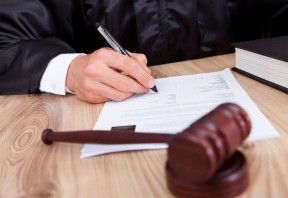 If you are arrested in the City of New York, or are accused of a crime and ordered to appear to answer the charges, your first interaction with the court is known as an arraignment. Individuals who are arrested, or taken into custody by the police, will be brought before a judge for arraignment within 24 hours of arrest. For certain crimes, you might be issued a Desk Appearance Ticket that directs you to appear before the court at a specific time. In either case, it is always best to be accompanied by a skilled criminal defense attorney who understands the criminal arraignment process and can explain your rights and options.
If you are arrested in the City of New York, or are accused of a crime and ordered to appear to answer the charges, your first interaction with the court is known as an arraignment. Individuals who are arrested, or taken into custody by the police, will be brought before a judge for arraignment within 24 hours of arrest. For certain crimes, you might be issued a Desk Appearance Ticket that directs you to appear before the court at a specific time. In either case, it is always best to be accompanied by a skilled criminal defense attorney who understands the criminal arraignment process and can explain your rights and options.
An arraignment is not a trial—there are no witnesses, no testimony, and the arresting officer might not even be there. Generally speaking, from the defendant’s perspective, an arraignment is about bail. The judge has the discretion to set (or not set) bail, and to determine the amount. One of the most important things a defense attorney can do for you at an arraignment is advocate for bail and negotiate or argue for the amount and the terms of bail set by the court. The best case scenario—short of having the charges dropped altogether—is that you are released without bail, or on your own recognizance, based on your promise to return to court on the date set by the judge.
If bail is set, the defendant will be held in custody until the required amount is posted.
At the arraignment, you should be notified of the precise charges be made against you. In addition, the prosecutor may provide certain notices regarding: (a) statements or confessions made by the defendant; (b) identification of the defendant, as in a line-up or photo array; (c) whether or not the case will be presented to a Grand Jury. Some district attorneys also ask the defendant to waive certain post-arraignment time limitations. However, this is often seen as a requirement because, if the waiver is refused, the defendant will not be allowed to discuss a plea bargain. In some situations, the defense attorney will also file applicable criminal procedure law notices.
Do I Need a Lawyer for An Arraignment in NY?
The arraignment process can be stressful and confusing, but is also very important. Having an attorney who is familiar with and knowledgeable about the process can be invaluable.




